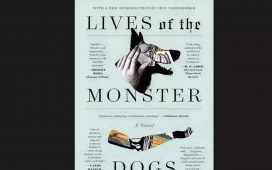
‘When the stock market bursts, boomers will be the biggest losers,’ he warns, adding, ‘If I were a child of a boomer, I would make my parents sell their stocks, bonds, and homes now… before the crash that is coming.’
After the big sell-off, according to Kiyosaki, what should boomers buy? Two of his recommendations are the usual suspects, gold and silver. But the third is a dark horse: bitcoin.
Bit who? A few years ago, that might have conjured a mental image of someone chomping on a piece of metal currency to see if it was made of precious or inferior metal. But today, bitcoin is the most valuable and best-known of the many thousands of cryptocurrencies in cyberspace circulation.
Launched on January 3, 2009, by a pseudonymous promoter, Satoshi Nakamoto, the coin of the e-realm, which belongs to no nation, was valued at $0.0009, and the first transaction made in it involved 10 bitcoins. Today, bitcoin’s value is $100,000 for a single unit. In the past year, it has outshone gold with a price hike of 142% compared with 32% for bullion, blindsiding sceptics like Nassim Nicholas Taleb, who had called it a ‘Ponzi scheme’.During its meteoric career, bitcoin, like the myriad successors that followed in its wake, has seen more precipitous downs and ups. As of June 2023, of the 25,000-odd cryptos, over 14,000 had disappeared into a cyberspace black hole. During the past year, in the US, investor loss was estimated at $5.6 bn. Crypto fraud spiked by 45%, and FBI reportedly received some 70,000 complaints under this head.The word ‘cryptic’ is derived from the Greek ‘kryptikos’, meaning hidden. In its modern English usage, it has come to mean obscure or mysterious. Perhaps the most mysterious thing about cryptos is their enormous and rapidly growing investor appeal, which today has resulted in total global holdings of an estimated $3.80 tn, not far short of India’s GDP of $4.01 tn.
In 2021, El Salvador became the first country to make bitcoin legal tender. This was done to attract foreign investment and facilitate financial transactions of citizens without access to conventional banking systems. The obvious attraction of cryptos is that they are beyond the ambit of any governmental control, providing a below-the-radar conduit for money laundering and other financial high jinks.
However, another factor – FOMO – might also be in play behind the bitcoin bonanza. FOMO is based on the psychological tenet that the two most powerful emotions that influence economic behaviour are fear and greed, determinants that Keynes called ‘animal spirits’.
FOMO is used to sell everything, from tickets to a pop concert to penny stocks, from fashion wear to penthouse apartments. Typically, celebrity and influencer endorsements are used to create an aura of enticement around any product or service, creating a herd instinct that feeds on itself.
If everyone’s buying it, it must be good. It must be good because everyone’s buying it. So let me also buy it so as not to be the only one missing out.
With advocates like Kiyosaki, cryptos are funny money, enabling their sponsors to go laughing to e-banks, confident that buyers for their product will come back for more and more. Or FOMO and MO.










